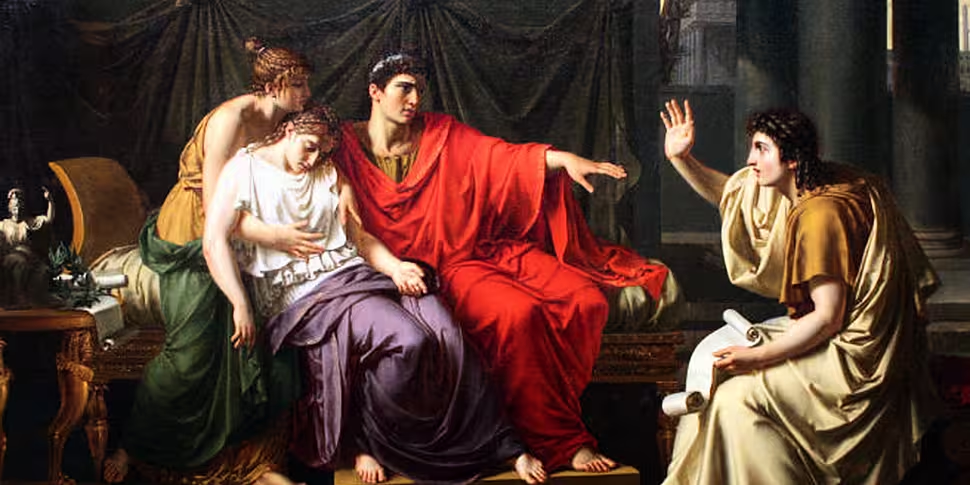On this week’s ‘Talking History’, Patrick and his panel of experts will be travelling back to Ancient Rome to view the life and work of the great poet Publius Vergilius Maro or Virgil.
Born in Northern Italy in 70 BC, Virgil is considered the most highly esteemed poet in the history of the Roman Empire. His most famous work was the Aeneid, an epic which embodied an idealised version of Roman history and provided a vision for the future of the Roman Empire. He was set this task by Augustus, the first Roman Emperor, who had just begun his reign in 27 BC.
This work followed in the Greek tradition set by Homer and Herodotus centuries before him. Indeed, the hero of the piece, Aeneas, was featured as a character in Homer’s Illiad.
Virgil grew up amongst humble beginnings in Andes, a rural village on the outskirts of the Roman Republic, but his love of literature saw him gain education in Milan and Rome, where his knowledge of Greek and Roman authors was honed. During this time, there was much unrest in Rome. The republic, under Julius Caesar was coming to an end.

Luca Giordano's impression of a scene from the Aeneid
Having gained power in the Gallic Wars by 51 BC, Caesar set about extending Roman power across the continent. When it seemed his period of leadership was due to end, Caesar defied the Roman ruling class, famously signified by crossing the Rubicon in 49 BC. Again a period of Civil War broke out, with Caesar emerging as the autonomous leader.
However, the unrest would continue. In 44 BC, on the Ides of March, a plot to assassinate Caesar came to fruition. Once again, civil war engulfed Rome. On this occasion, Caesars heir Gaius Octavius, later to be named Augustus, emerged victorious. With his rise to power the Roman Empire had been born.
Having risen to prominence due to his early work, Virgil gained notoriety amongst his peers and so in 31 BC Augustus asked him to produce what became his defining work. It is this conflict and turmoil that is so illuminable throughout the work of Virgil.
However, his final work, which he spent the remainder of life working on, was not typical of the poetry that Virgil authored. His first major work was entitled ‘The Eclogues’ or ‘The Bucolics’. This was predominantly set to a rural backdrop, and while somewhat political in nature, it was predominantly an ode to the countryside for which he held much affinity.

'La Mort de César' by Jean-Léon Gérome, a depiction of the death of Julius Caesar
His second major work, ‘The Georgics’, again focussed on the experience of agricultural life. It was written at a time when Virgil’s stock was on the rise within the higher Roman classes, but his vivid insight into landscape and nature affirmed his true inspiration as a poet.
Nonetheless, throughout these works, Virgil was priming himself to produce his masterpiece, his epic Aeneid, which has proven to define the literature of this era.
Patrick and his panel of experts will delve into the life and work of Virgil, the unparralled exponent of Roman literature. What impact did the Rome’s political balance have on his writing? How does he compare to his Greek luminaries? And how is his work received and interpreted today?









